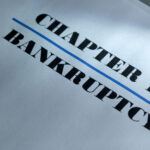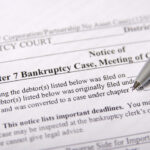Blog
Recent Blog Posts
How Secured, Unsecured and Priority Claims Are Treated in Bankruptcy
Bankruptcy cases can involve three different classes of debts or claims: secured, unsecured and priority. Anyone involved in a bankruptcy as a debtor, creditor or interested third party should have a basic understanding of these types of claims and how each type is treated in a bankruptcy case. A secured claim is a financial obligation […]
Refinancing Your Mortgage During a Chapter 13 Bankruptcy
It is possible to refinance a home loan while in Chapter 13 bankruptcy, though there are hurdles that make the process more difficult. The eligibility requirements are fairly strict. The debtor must get pre-approval from the bankruptcy court. Refinancing under Chapter 13 also takes longer and requires additional paperwork. However, the result can be worth […]
Can a Chapter 11 Plan Release a Third Party from Liability to Creditors?
In a Chapter 11 bankruptcy, the debtor (usually a business organization) reorganizes its existing debts and repays obligations over a period of years in accordance with a court approved plan. Longstanding bankruptcy law permits the courts to discharge certain obligations as to the debtor. Some Chapter 11 debtors propose reorganization plans that release third parties […]
The Perils of Not Responding to a Collection Lawsuit
When you are served with a summons and complaint in a collection matter, ignoring these papers will likely have costly consequences. You might not only lose the opportunity to defend yourself, but also put yourself at risk of collection measures that can take your assets and income from you, or even force you into bankruptcy. […]
How Courts Evaluate Whether to Convert a Chapter 7 to a Chapter 11
An individual seeking Chapter 7 bankruptcy protection must demonstrate a lack of disposable income to repay debts, but that isn’t the end of proving eligibility. The bankruptcy code allows a court to convert a Chapter 7 to a Chapter 11 under certain circumstances. This is typically done at the request of creditors who show they […]
Getting the Most Out of California’s Homestead Exemption in Bankruptcy
Homeowners who fall on hard financial times often rule out bankruptcy because they fear it means they might lose their home. But in reality, many owners are able to use California’s homestead exemption to file for Chapter 7, receive a discharge and keep their home. For 2022, the exemption is $300,000 or the median sale […]
Using Cash Collateral to Pay Expenses During a Chapter 11 Case
Most Chapter 11 bankruptcies involve a number of “first day” motions, which are applications made to the court at the very start of the case to give some immediate relief to the debtor. These motions might seek approval of financing for the debtor, preference of certain creditors over others and other changes in how the […]
What Happens at the Creditors’ Meeting in a Chapter 7 Bankruptcy?
The creditors’ meeting is a required procedure in all Chapter 7 bankruptcy cases. The idea of facing your creditors in person may seem intimidating, but in practice most of these meetings are quick and painless. In fact, even though it is called a creditors’ meeting and they have the right to appear and ask questions, […]
How DIP Financing in Chapter 11 Can Help Turn a Company Around
The goal of Chapter 11 bankruptcy is to help struggling businesses reorganize and become financially viable again. But every company — even one in Chapter 11 — needs adequate cash flow to keep operating. Debtor-in-possession (DIP) financing is a feature that can help a company get access to the cash it needs to remain operational […]
Overcoming the Presumption of Abuse in a Chapter 7 Case
Debtors filing for Chapter 7 bankruptcy are subject to a qualifying “means test.” The purpose of the test is to confirm that the debtor is truly incapable of paying his or her outstanding debts. The means test requires disclosure of the debtor’s income and expenses. If the debtor’s current income is greater than the median […]











